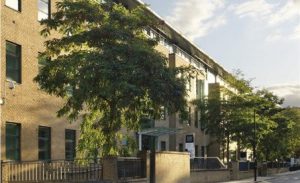
Before starting my work experience in King’s Health Economics, I had very little idea what health economics actually was, let alone what kind of work a health economist would do.
I’ve never really known what career path I would follow but I’ve always had an interest in both statistics and healthcare, so health economics seemed like a good option. Health economics essentially looks at the efficiency and efficacy of health and healthcare. The role of health economists is to conduct economic evaluations of healthcare programmes and policies, so the costs involved can be understood and the cost-effectiveness can be measured.
I’m studying Maths and Statistics at the University of Bath and have just finished my first year. I was looking for work experience that could help me figure out what to do during my placement year, which is in the third year of my degree. After sending out what felt like countless emails a few months before, I was lucky enough to be given this opportunity to work at King’s. I was put in touch with Poushali Ganguli, a research associate and part-time PhD student, and a few months later I started my summer holiday by spending three weeks in the David Goldberg Centre at the King’s Denmark Hill campus.
The study I worked on is called MICE (Mental Health Intervention for Children with Epilepsy), and we were working in partnership with team members from UCL and Great Ormond Street Hospital. The study is doing amazing work trialling a new method of therapy to help treat mental health problems in children and adolescents with epilepsy, by integrating mental health services into existing epilepsy services. The reason this is so important is that over half of young people with epilepsy also have mental health problems – a far higher proportion than in the rest of the population.
Two years ago, a feasibility survey was given to the parents of 46 children with epilepsy to ask them about the NHS service use of their children. The purpose of this was to see what kinds of services children with epilepsy typically use, how much they use them, and then how much this would cost the NHS. My main job was to use their responses to work this out. When the study is over someone else will then do the same work with more recent data and the results before and after the mental health services can be compared.
Under Poushali’s guidance, I started by creating a database and populating it with responses from the surveys. I then edited the responses which were ambiguous, carefully interpreting them and making sure they did not lose their intended meaning, whilst also giving conservative estimates where necessary. It turns out busy parents are understandably not the best at answering questionnaires, meaning that there were a few empty spaces which had to be considered before I could calculate any costs. This led to research into the average length of GP appointments, the recommended dose of a drug to give to a child etc. I then had to find national unit costs for each service or drug used, through various online resources.
This information was then imported into a statistical software package to be analysed. I’d done some coding in my first year at university, but it was mostly problem-solving rather than data handling. However, with some guidance, I was able to use the software Stata to calculate mean costs for various services, groups of services and medications, that I could then tabulate. In the end, I created three tables detailing services used and the mean cost per child for each. I was pleasantly surprised to see how much focus was put on looking at trends and where the most care was needed, as opposed to simply finding a national cost and labelling this as the cost of care for these children. It was also a great opportunity for me to be able to work with real data from a trial, which I wouldn’t have been able to do without working somewhere with such a great reputation and access to data as King’s has.
The next step in the process would be to write a full evaluation, but unfortunately, my time in the department had come to an end as I was going travelling. I really feel like the work I was doing had a meaningful purpose so hopefully, I will be able to continue to work on it this summer and as I start my second year at university.
My time there also wasn’t just work – everyone I spoke to was very generous with their advice – both professional and otherwise (specifically, in regards to the best places to eat in Camberwell). Poushali was incredibly generous in the amount of time she spent helping me, as well as teaching and showing me some of its incredible buildings around London. I can’t express my thanks to everyone enough and it was such a lovely surprise to find how grateful they were for the work I had done. It was a thoroughly enjoyable experience – I’ve gained so much knowledge and experience, as well as a better idea about what I may end up doing in the future.
Isabelle Santhiapillai is a Maths and Statistics student from the University of Bath who spent some time over the summer working at King’s Health Economics.



Leave a Reply